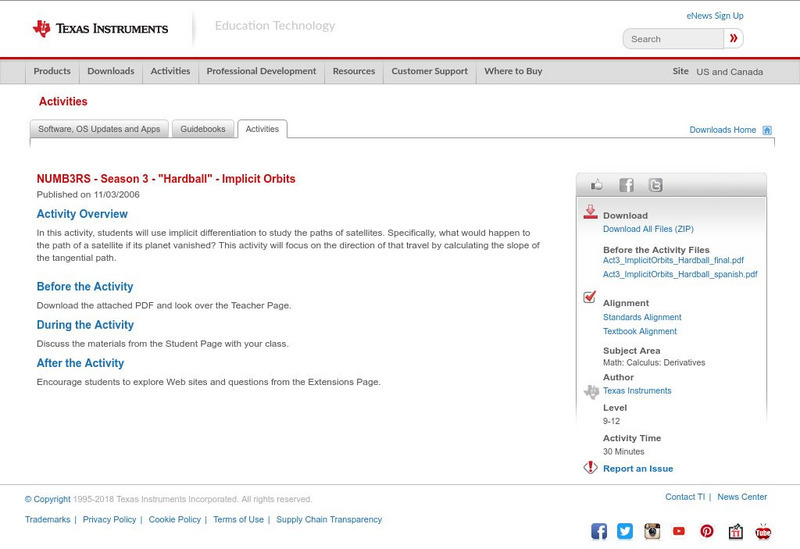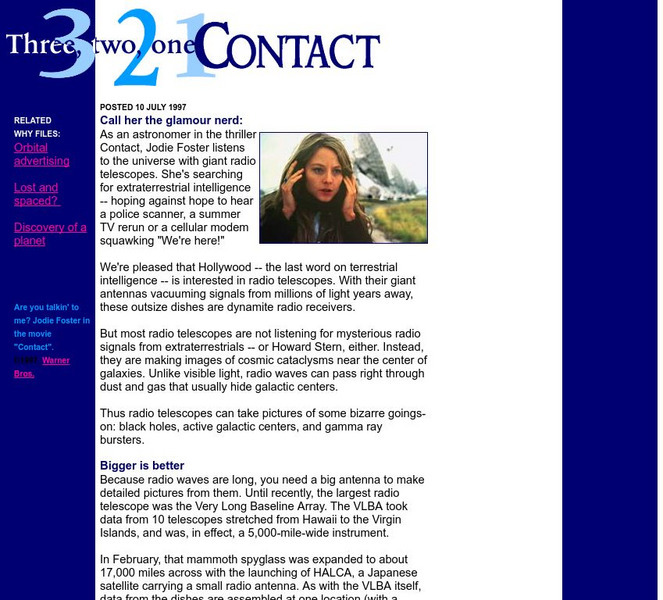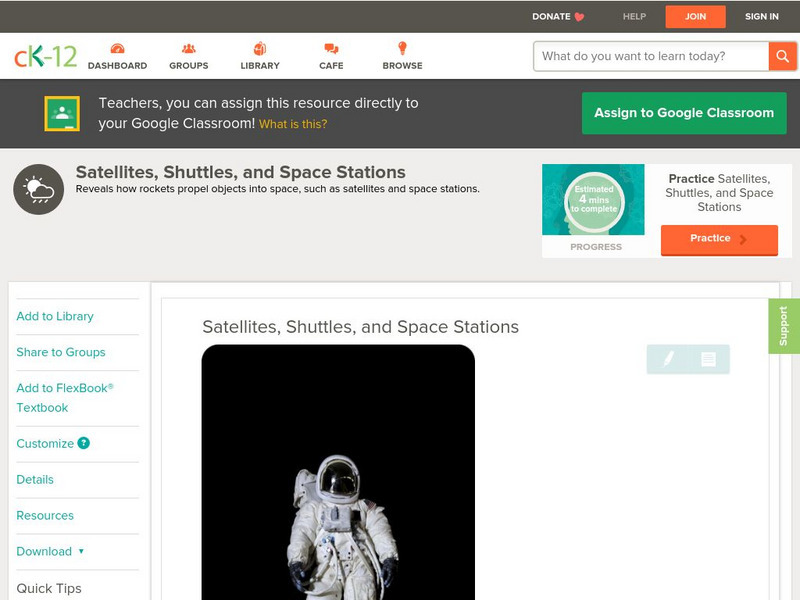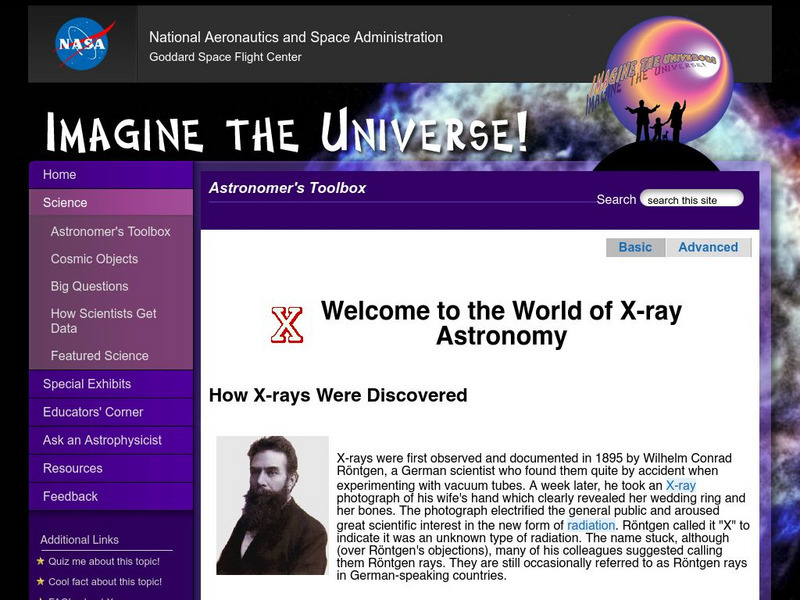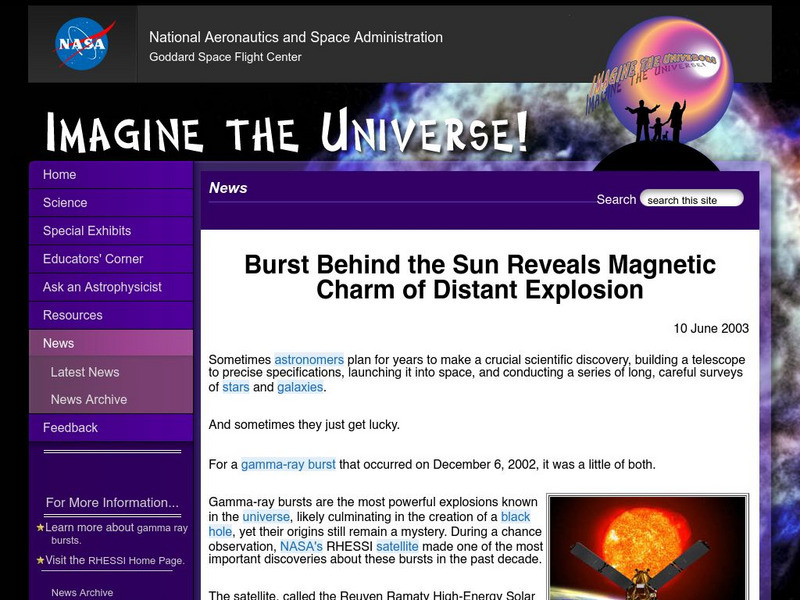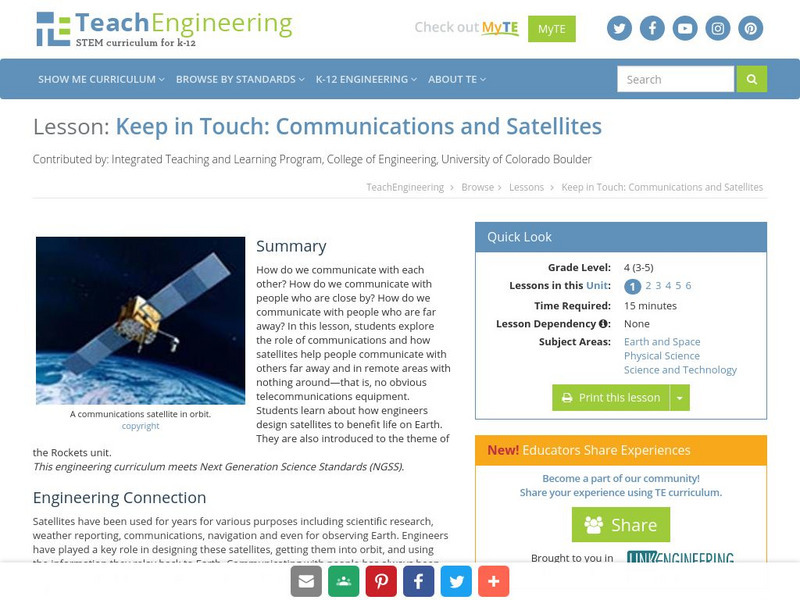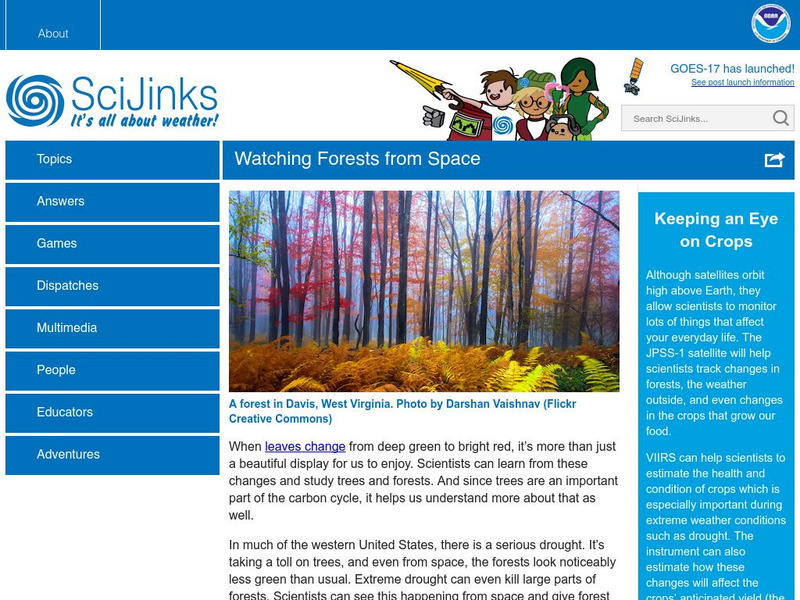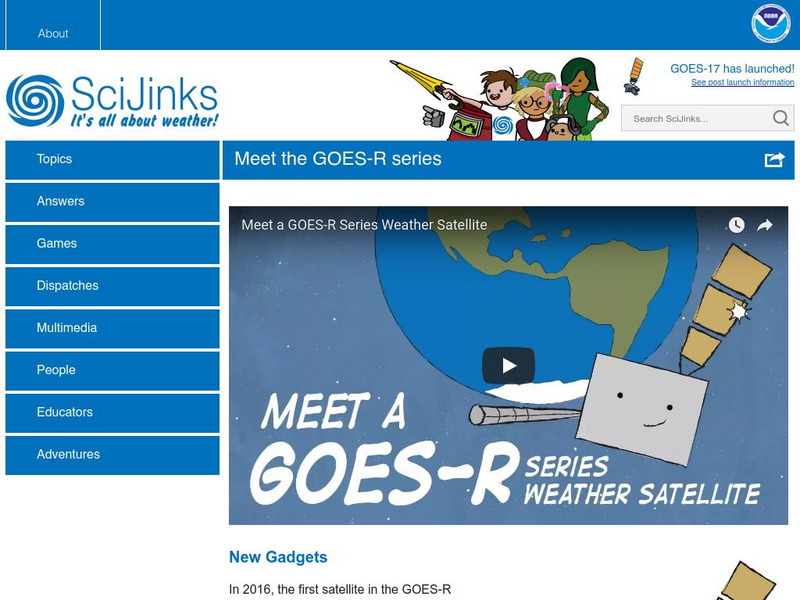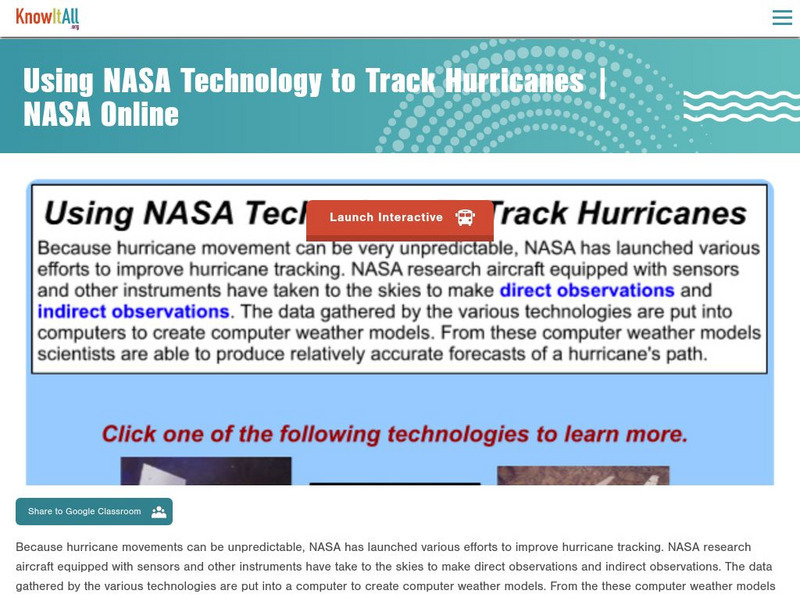European Space Agency
European Space Agency: Esa Kids: Our Universe: Satellites
A basic introduction to artificial, or man-made, satellites. Links to information about the planets and other objects in our solar system are included.
NASA
Nasa: Galileo Image Gallery: Jupiter Great Red Spot
NASA provides images of Jupiter's Great Red Spot to share with the public the excitement of new discoveries being made via the NASA/JPL Galileo spacecraft.
Texas Instruments
Texas Instruments: Numb3 Rs: Implicit Orbits
Based off of the hit television show NUMB3RS, this lesson describes what would happen to various satellites if their planets vanished. Implicit differentiation is used to determine the tangent to each satellite's orbit, which is the path...
University of Oregon
University of Oregon: Io, Moon of Jupiter
Statistics and general information about the volcanic moon of Jupiter. Good comparison, with graphics, of Io's volcanoes and Earthly geysers.
University of Wisconsin
The Why Files: 3 2 1 Contact, Don't Touch That Dial
A discussion of reflecting telescopes and their use in radio astronomy. The types of information gained from and the research emphasis fueled by such telescopes is described. Site uses Hollywood references and a humorous style.
TED Talks
Ted: Ted Ed: How Does Your Smartphone Know Your Location?
GPS location apps on a smartphone can be very handy when mapping a travel route or finding nearby events. But how does your smartphone know where you are? Wilton L. Virgo explains how the answer lies 12,000 miles over your head, in an...
Other
Whalenet: Home Page
An interacive educational website wich focuses on whales and marine research. There are special links for students, teachers, and the general public. Learn about certain whales, go on a tour, and more.
Other
Inta: Hechos Asombrosos
In Spanish. Could you provide an answer to each of the question presented on this page? First, write or draw the explanation to the question then reads the response on this website and then compare your answer with the given answer.
Other
Inpe: National Institute for Space Research
This site is the homepage of Brazil's National Institute for Space Research with links to specific programs in more defined categories like space and atmospheric sciences, meteorology, space engineering and technology, and more.
Other
Astromador: Astronomia Para Amadores
This resources focuses exclusively on astronomy. It's packed with historical facts about space exploration, famous people who pioneered the study of stars and planets. It features chronological list of space exploration, current news,...
Orpheus Books
Q Files: Technology: Space Transport
The story of space exploration is told from the first successful rocket built in 1926 to space probes and the International Space Station.
CK-12 Foundation
Ck 12: Earth Science: Satellites, Shuttles, and Space Stations
[Free Registration/Login may be required to access all resource tools.] Astronauts and space study.
CK-12 Foundation
Ck 12: Earth Science: Satellites, Shuttles, and Space Stations
[Free Registration/Login may be required to access all resource tools.] Astronauts and space study.
NASA
Nasa: Imagine the Universe: Welcome to the World of X Ray Astronomy
Site recounts how X-rays were discovered as well as who discovered them. Offers graphics, links to facts on this topic, a quiz, and teacher resources.
NASA
Nasa: Imagine the Universe: "Burst Behind the Sun"
Site provides the article, "Burst Behind the Sun Reveals Magnetic Charm of Distant Explosion," that details on a gamma-ray burst that occurred on December 6, 2002. Provides graphics and links to learn more about gamma-ray bursts.
NASA
Nasa Space Science Data Archive: The Voyagers
This web page contains information about the Voyager and the Voyager II. The page explains that the Voyagers were designed to go beyond our solar system. The page also contains scientific results of regarding the Voyager mission.
TeachEngineering
Teach Engineering: Keep in Touch: Communications and Satellites
How do we communicate with each other? How do we communicate with people who are close by? How do we communicate with people who are far away? In this instructional activity, students will explore the role of communications and how...
NASA
Sci Jinks: Watching Forests From Space
Check out how satellites help scientists study the Earth's forests. What can be learned through these images?
NASA
Sci Jinks: Meet Goes R
A detailed resource identifying the new satellite in the GOES-R series being released in 2016. Find video clips, charts, and comics about it. Know what the satellite will help scientists study from space.
South Carolina Educational Television
Know It All Media: Tracking Hurricane Technology
Find out how scientists have improved hurricane tracking technology through new aircraft and advanced instruments.
NASA
Nasa Star Child: Star Child
StarChild from NASA defines and describes the Solar System in a simple and easy-to-understand manner. The website is broken down into two versions for the student, grade school and junior high.
Physics Classroom
The Physics Classroom: Circular Motion Principles for Satellites
From The Physics Classroom. Uses easy- to-understand language to discuss how circular motion principles apply to the motion of satellites. Describes the tangential velocity and centripetal acceleration of a satellite. Includes many...
Physics Classroom
The Physics Classroom: Mathematics of Satellite Motion
The mathematics associated with the motion of satellites is described. Equations (for period, velocity, acceleration and force) are stated, symbols described, and sample problems solved. Includes five practice problems with solutions and...
Physics Classroom
The Physics Classroom: Energy Relationships for Satellites
The orbits of satellites are described and an energy analysis is performed. Kinetic, potential and total mechanical energy are explained and applied to the motion of satellites.



